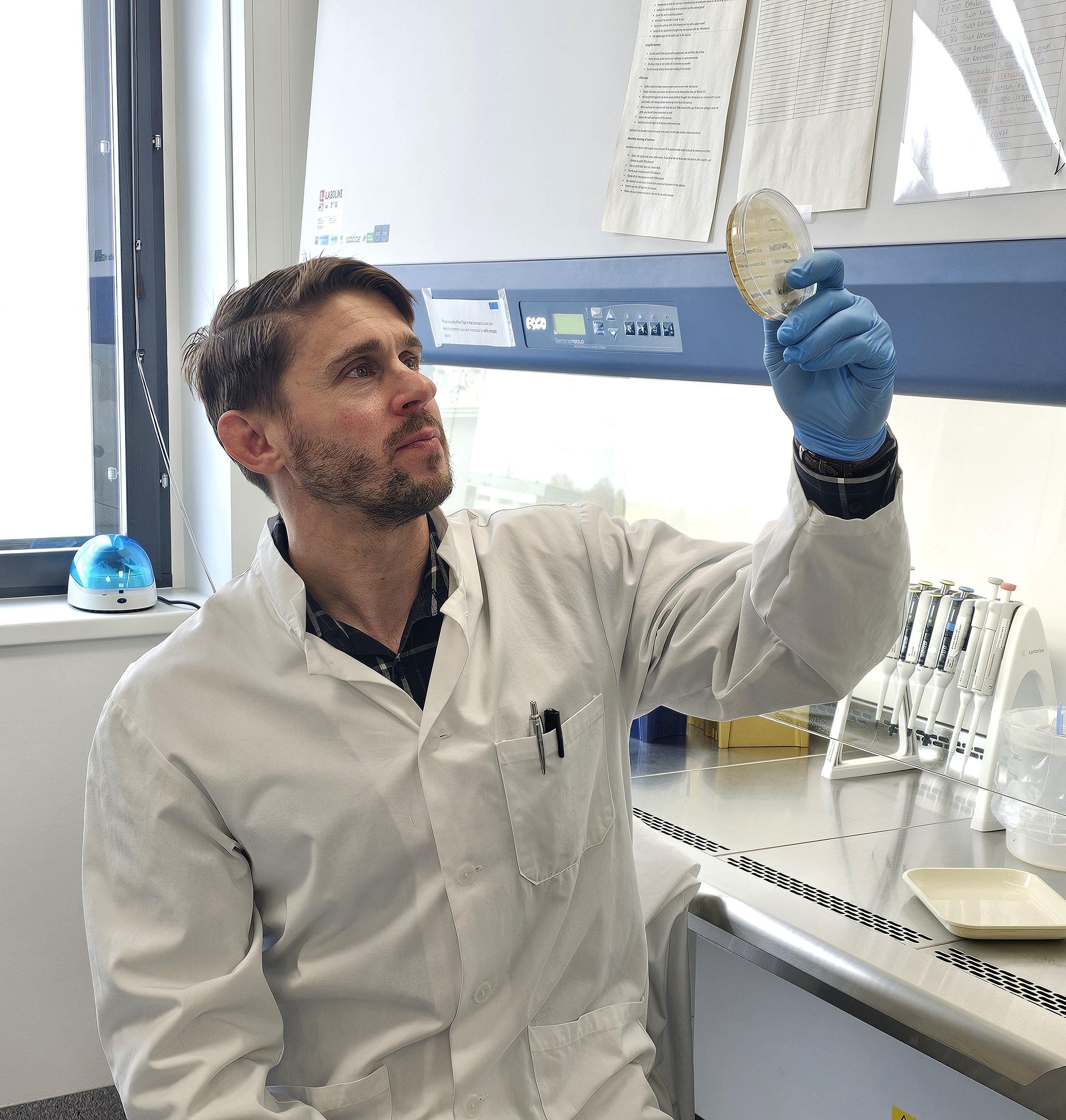A cough that won’t stop: Instrufoundation’s grant helps finalize dissertation research on whooping cough

Whooping cough hasn't disappeared. It remains a serious illness, especially for newborns. “Research is vital to stay one step ahead,” says Alex-Mikael Barkoff, who is finalizing his doctoral thesis on the subject.
After graduating as a chemist and struggling to find work in his field, Alex-Mikael Barkoff found a project researcher position at the University of Turku’s Department of Biomedicine appealing. He is still on that path, and by the end of the year, he will complete his dissertation on whooping cough.
– It was either coincidence or luck, but I quickly became fascinated with microbiology. Whooping cough became a topic I couldn’t let go of, says Barkoff, a doctoral researcher in pediatrics and a project researcher in biomedicine at the University of Turku.
His dissertation, “Pertussis in Europe: Harmonization of serological diagnostics, surveillance of the disease, and shifts in the circulating Bordetella pertussis strains”, is more relevant than many might think. For example, last year the number of whooping cough cases in Europe reached record highs. In the first part of 2024 alone, over 32,000 cases were reported in EU and EEA countries. Even Finland recorded more cases than at any time in the past 30 years.
Whooping cough is not just a disease of young children
Traditionally, whooping cough has been associated with infants, but recently, most infections have been reported among 10–14-year-olds.
– The disease has perhaps been somewhat hidden. During the COVID-19 pandemic, natural exposure decreased, and now our immunity is weakened. This is reflected in the growing number of infections among school-aged children, Barkoff explains.
However, his dissertation does not focus on the effects of COVID-19. Instead, he has studied how diagnostics and bacterial variation influence the spread of whooping cough and developed a method to examine how the B. pertussis bacterium produces proteins used in vaccines. The results reveal that one key vaccine antigen is no longer produced by many bacterial strains. In other words, the bacterium has adapted to evade the vaccine.
– That’s a major finding. While the current acellular vaccine is effective, the bacterium seems to be able to bypass immunity. This must be considered in future vaccine development.
A dissertation grant enables the final push
The €7,000 grant awarded by the Instrumentarium Science Foundation is, for Barkoff, not only a financial support but also a recognition of the value of his research.
– I received my first grant from the Instrumentarium Science Foundation at the start of my doctoral studies. This most recent one is to help complete the dissertation -writing the book - which requires time and focus. The grant allows me to concentrate on that, and my work will be finished by the end of the year.
In a researcher’s everyday life, external funding is more than just a practical matter. It increases visibility, signals trust in research and helps build a scientific career.
– Every grant becomes part of your portfolio. When there’s investment in your research, it builds confidence in future roles too. Without these grants, this research wouldn’t exist, Barkoff says.
Looking ahead: Improving vaccines and diagnostics
Barkoff’s dissertation is now nearing completion, with all six planned scientific articles already published.
– Research on whooping cough has been a major part of my life for a long time and will continue in the future. At the University of Turku, we’re involved in many studies related to infectious diseases and whooping cough in particular. For instance, we lead a newly established EU-funded European reference laboratory that aims to improve monitoring and control of whooping cough and diphtheria in the EU and EEA.
Barkoff is particularly interested in exploring how vaccine efficacy can be improved and how protection could be measured more precisely. According to him, a clear correlate of protection is still missing - something that would indicate when a person is truly protected.
Two of his publications focus on serology-based disease surveillance and standardizing diagnostics across Europe, in other words, how to make blood test-based diagnostics more comparable between countries. There are currently significant differences.
– My dissertation research shows that underdiagnosis is widespread. Disease control cannot be effective if we don’t even know where and how much it occurs.
– My work helps improve diagnostics, provides tools for surveillance, and reveals the real prevalence of the disease. This enables authorities to respond in a timely manner and to develop better prevention strategies,” he concludes.
Text: Tia Härkönen
Photo: University of Turku
